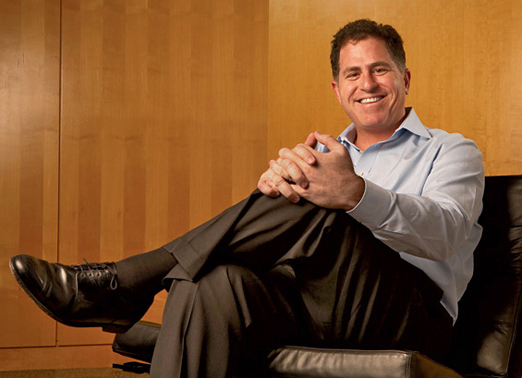Dell Inc. has signed a $24.4 billion agreement under which Michael Dell, the company’s founder, chairman and chief executive officer, in partnership with the investment firm Silver Lake, will acquire computer maker.

In a statement today, Dell assured shareholders that their investments will be safe in the new company and expressed confidence in its future despite recent setbacks.
Dell, who founded the company in 1984, has made great efforts to bring back the lustre to the company when he returned to head it once more in 2007 after handing over leadership to his hand-picked successor Kevin Rollins in 2005.
“Microsoft has been aiming for total control of the uiser experience in both hardware and software and a tigther alliance with Dell can help it achieve that,” he said. “On the other hand, Dell can leverage Microsoft’s software and R&D resources to help it compete woth the likes of Samsung and Apple.”
While Microsoft has done ver well with its Server 2012 and HyperV products, the data centre market is rapidly moving towards a more converged infrastructure that enables to deployment of customizable, intergated and fully-automated public cloud and private cloud offerings,Johnson said.
“By working more closely together, Dell and Microsoft will be in a far better position that they are now, to compete with the likes of Oracle and IBM,” he added.
Johnson, also does not see Dell initiating any wide-scale gutting of the company’s departments.
“I don’t think there will be any across-the-board cuts,” he said. “I think Dell will be concentrating on providing higher value from a smaller number of product offerings instead.”
There’s some good reasons for Dell to go private said James Alexander, senior vice-president with the London, Ont.-based Info-Tech Research Group. A key one is the ability to develop and execute a strategy to deal with key trends such as bring your own device (BYOD) and the consumerization of IT in private, without the prying eyes of their competitors looking over their shoulders via the mandatory disclosure required of public companies.
Silver Lake is a global investor in technology and tech-enabled industries with more than 100 investment specialist in the United States, Europe and Asia who approximately $14 billion in investments.
Following the completion of the deal, Dell will own approximately 14 per cent of the company and will continue to lead the company as chairman, and CEO. He will maintain substantial equity in Dell by contributing his Dell shares to the new company as well as making an additional investment.
The cash and equity contributed by Dell was funded with investments affiliated with Silver Lake, cash from MDS Capital L.P. and a $2 billion loan from Microsoft Corp, rollover of existing debt and debt financing by Bank of America, Merrill Lynch, Barclays, Credit Suisse and RBC Capital Markets.
The transaction is subject to shareholder approval and is expected to close before the end of the second quarter of Dell’s fiscal year in 2014.
(With notes from Jeff Jedras and Howard Solomon, IT World Canada)